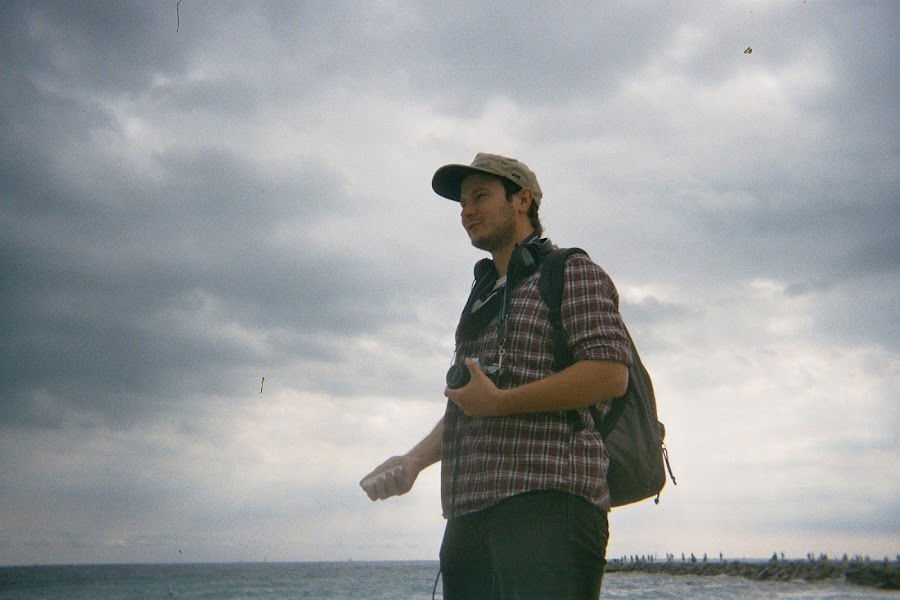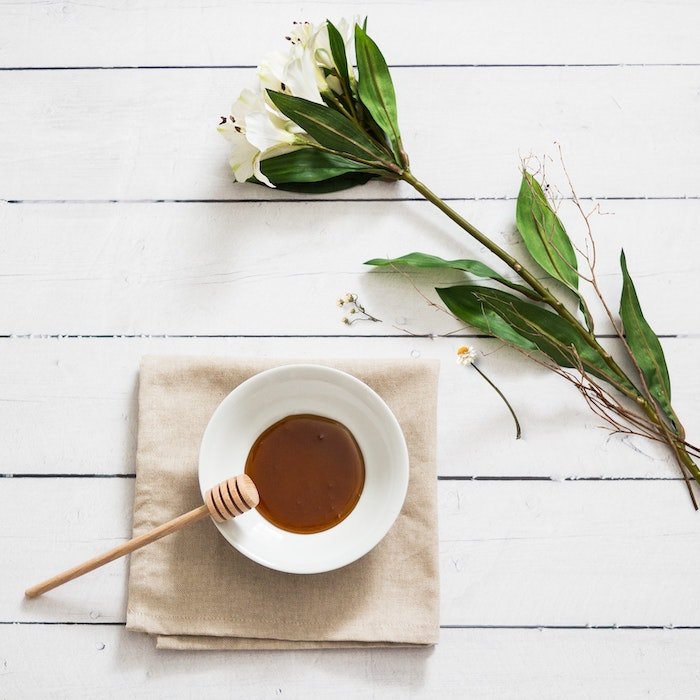Flowers make the perfect subject for photography. They come in a variety of colors, shapes, and sizes, and they add a touch of beauty to any setting. However, photographing flowers can be tricky. You need to know how to capture their natural beauty while avoiding common mistakes.
In this article, we will teach you how to shoot beautiful floral photos every time. We will cover everything from choosing the right flowers to setting up your shot to editing your photos in post-processing. So whether you are a beginner or an experienced photographer, this article is for you!
Creating Floral Photos Through Flat Lay Photography
Floral flat lay photography is a combination of flower arranging and still life photography. It involves elements of design and is an exploration of photography composition.
You take flowers and lay them flat on a surface, creating a colorful and vibrant still-life scene. You use your camera to capture the scene, creating amazing images that sing the song of flowers.
Flat lay photographs are an excellent way for floral designers to express their ideas. They can bring their unique style to the photos, adding variety and power to their online media.
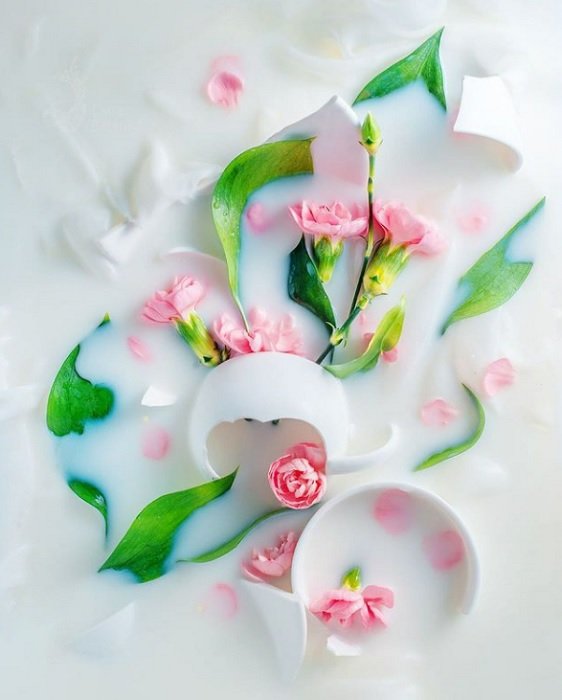
How to Create Floral Flat Lay Photography
Here is our list of excellent tips to help you get started with floral flat lay photography.
Use Flowers That Tell a Story
Your flower selection will be down to personal preference. If you love roses, you can experiment with them. There are hundreds of varieties, so you can create images that celebrate this flower.
But some flowers hold special meanings and associations. Red roses are linked to passion and love, while Lilies are often related to funerals.
Daffodils sound their trumpets in early spring, reminding us of that season. And, as the national flower of Wales, they have a geographical association.
You can use whole flowers, with or without stems. And you can use individual petals.
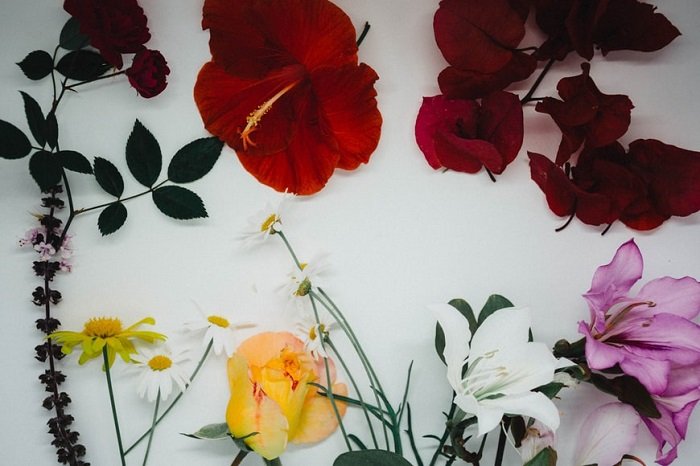
Choose a Color Scheme for a Uniform Composition
Filling your flat lay photography with as many different colors is one option. It will certainly make for an impressive image. But consider refining your color choices to create themes and set your style.
Color selection in floral flat lay is much the same as in flower arranging. You want to find colors that compliment each other. Each flower and petal should have a clear voice without being drowned out by the others.
Colors influence the mood and theme of your floral styling. You can select paler colors for a more fresh image. Or you can go rich and moody if you want an autumnal feel.
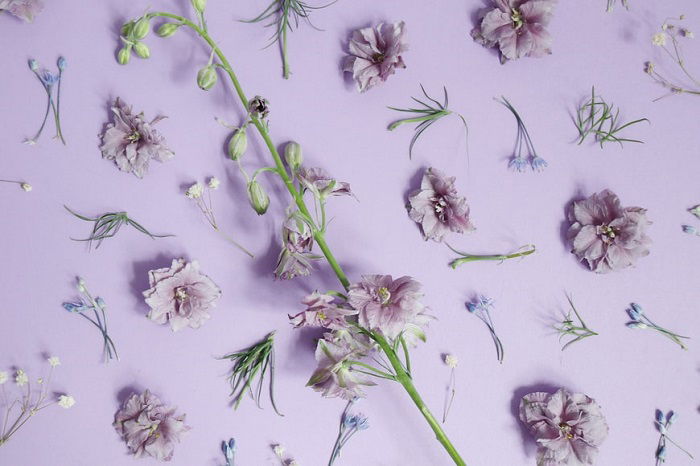
Use Your Background to Create Unique Images
You should choose a material for the background that lets the flowers sing to their full potential. A white background works well. And you can use different materials to change the atmosphere of the image, for example using paper, card, or even a bedsheet.
You don’t want anything overpowering, but you can use other surfaces to add texture and color. There’s the stitch work of different fabrics. And you can use the grain of a wooden table.
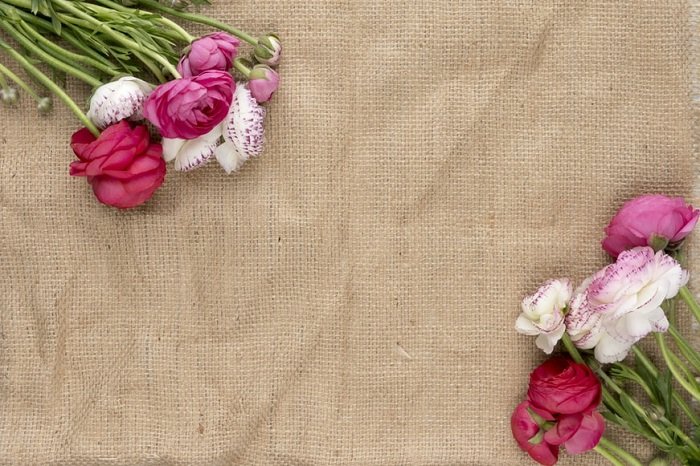
Experiment With Light to Change to Mood of Your Image
Natural light is excellent for floral photography because it’s soft and spreads evenly. And it means no expensive equipment! All you’ll need is a window.
If your natural light source creates shadows you don’t want, you can use mirrors or white sheets of paper as reflectors. It’ll keep you light even without having to use much equipment.
You can use electric lights and lamps. They’ll give you a bright space to work with. And you can experiment by creating strong shadows.
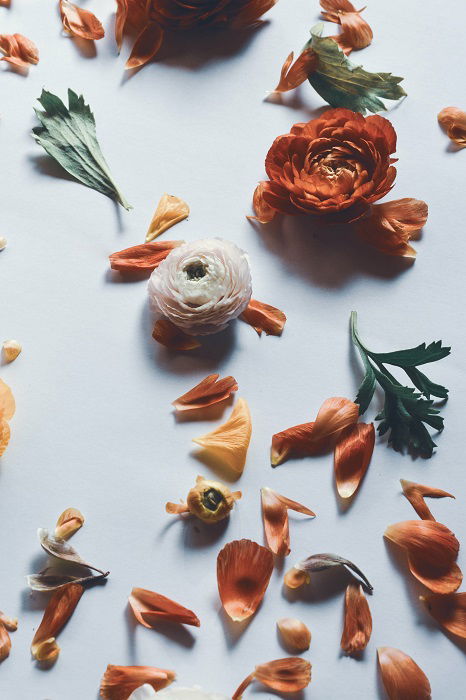
Be Bold With Your Composition
Think about the space you’re using for your flat lay design. How do you want to fill it?
You can opt for a minimalist layout, using only a few flower blooms and stems. You can use negative space to emphasise the objects you do include.
Alternatively, you can use more flowers for an intricate composition. You can arrange flower heads and petals in a busy formation, creating patterns and shapes in your photo.
You can use stems to add structure to your photos. Their straight lines can bring counter the soft floral shapes. And they can be to frame and direct the image.
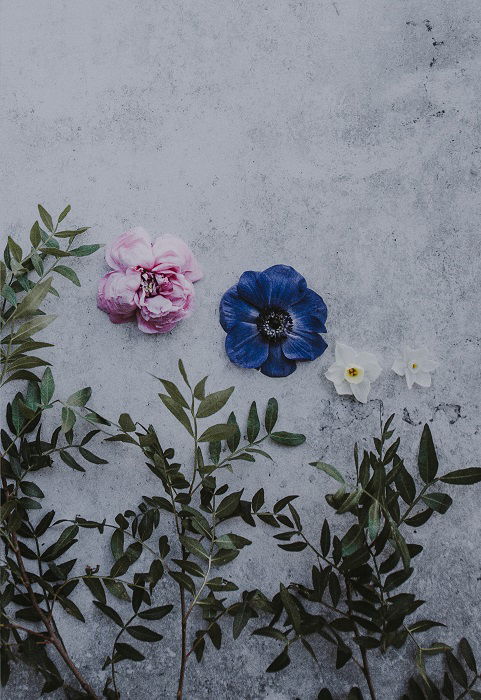
Try Using Extra Elements and Props
Using additional objects and props is a great way to bring meaning to your flat lay photography.
You can use miniatures or toys to create garden scenes. Or you can add items that help tell a story within your image. Just remember that the flowers are your main subject.
Floral flat lay can be used for product photography. For florists, the flat lay design is the product. But you can use flat lay to decorate products for advertisements.
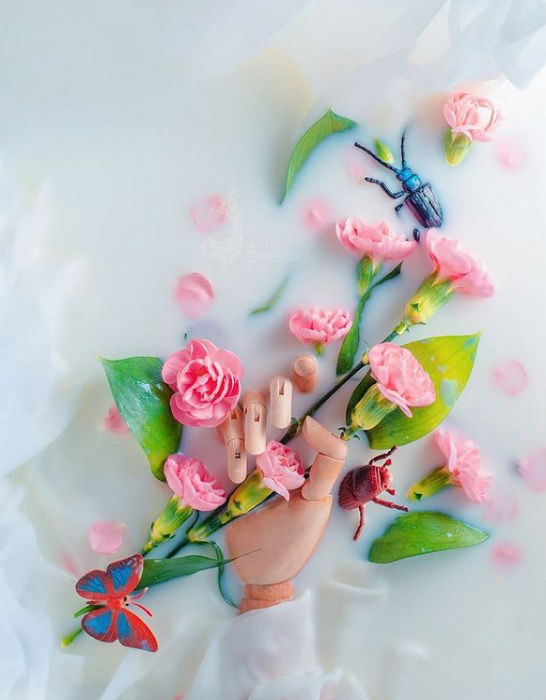
Conclusion
Floral flat lay is a great way to express your love of flowers in photography. It’s a style of photography that incorporates design and flower arranging.
It can be used to celebrate flowers. Or you can use flat lays for advertising and social media content.
If you have a passion for plants, you should try your hand at floral flat lay photography.
If you want to learn more techniques to create magical images, check out our Magical Photography Spellbook.
